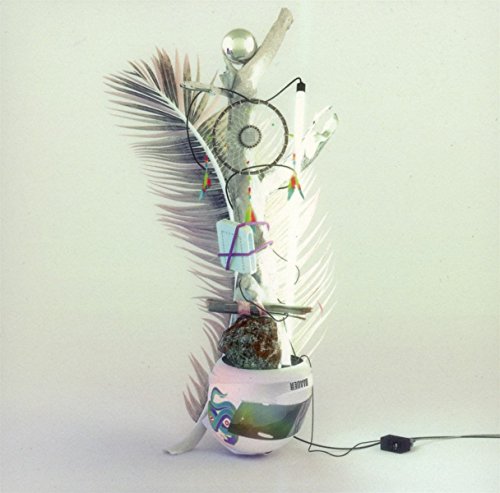
Baauer
Aa
Release Date: Mar 18, 2016
Genre(s): Electronic, Pop/Rock, Club/Dance, Bass Music, EDM
Record label: Luckyme
Music Critic Score
How the Music Critic Score works
Buy Aa from Amazon
Album Review: Aa by Baauer
Great, Based on 9 Critics
Based on rating 5/5
Since signing to LuckyMe in 2012, prodigal New York producer Baauer has enjoyed criticial acclaim, notably for his Dum Dum and ß EPs, but also for various exciting collaborations and one particularly viral meme. But, where the Harlem Shake fad was global but anonymising, his debut record Aa – a tight half-hour showcase of his considerable production talents – should put Harry Bauer Rodrigues' name firmly on the map of contemporary electronic music. Whether it’s tribal percussion (Church, the M.
Based on rating 9/10
Unless you were living in a cave throughout 2012, you've probably heard "Harlem Shake," but you may not be aware of its maker, Baauer, and if you ask him, that isn't the worst thing in the world. Like any artist who's trying to outrun their most popular work, Baauer comes out swinging on Aa, but not really in the ways you might expect. There's nothing necessarily out of place here — it all sounds as big and polished as it's supposed to — but Aa has as many trap doors as it does dance floors.
Based on rating 8/10
It’s a little bit silly at this point to whinge about the unfairness of Baauer’s career being defined solely by his gigantic smash hit “Harlem Shake”, because Harry Rodrigues has continued to do quite well for himself even after fading from the mainstream. Importantly, his talent has been recognized by taste- and career-makers across the globe, most vitally by his own label (LuckyMe), but also through the continued support of countless critics both purportedly snooty and otherwise. And rightfully so: release after release, Baauer’s continued to kill it.
Based on rating 8/10
Philadelphia producer Baauer may have taken the world by storm with his electro-trap and mega-meme-pawning anthem "Harlem Shake," but his debut album, Aa, suggests he's so much more, and that "Harlem Shake" is his "Don't Worry, Be Happy. " Go further into Bobby McFerrin's work and there is rich art along with deep cuts, and the same could be said for Baauer, especially on the first half of Aa. "Pinku" is effervescent and abstract nu-disco that bubbles and delights, while "Body" is sleek and sexy bedroom music for robots with a taste for '80s R&B.
Based on rating 7.3/10
The path is so well charted that it's practically a ritual. Young artist creates track; track becomes hit; hit becomes phenomenon, artist becomes famous. The track is undeniable and thus, ubiquitous. Your parents are aware of it. Fans start to hate it, though nowhere close to as much as the artist ….
Based on rating B
Spending much of his adolescence in Germany and the UK, the young Harry Bauer Rodrigues, aka Baauer, was exposed to the amorphous realms of sound system culture. First established in Kingston in the early 1950s, the massive stacks quickly made it to London thanks to the efforts of “Duke” Vincent Forbes. By the late 1970s and ‘80s, after reggae and dub had invaded the UK, a new bass quake started to dominate these underground parties: jungle, dubstep, grime, and dozens of other splintered bass genres all evolving from this community-based culture.
Based on rating 3.3/5
Harry Rodrigues knows how to make a lot out of a little. He launched into stardom off the back of 2012's "Harlem Shake," which became a meme less than a year later (and a number-one hit after that.) It feels like ages ago: he's since dismissed the track as "corny and annoying as fuck," and he's not wrong. At this point, it doesn't fit into his catalogue very well.
Based on rating 3/5
In 2013, Baauer’s track Harlem Shake triggered a dance craze of pure silliness, its flailing noise the perfect backdrop for people in morph suits to prang out to. Tens of millions of YouTube hits later, he’s released a globe-trotting debut album, one that works best when it taps into the same lunatic energy. The build of GoGo! may be predictable, but its drop is spectacular, splashing the track into the concrete so it writhes in bewildered arrhythmia – and yet still bangs.
Opinion: Great
IT’S HARD TO BELIEVE it’s been over three years since Baauer’s life changed forever. Not with the release of his famous “Harlem Shake”—that came out months before said life alteration—but the meme videos spawned using the producer’s song. You remember the ordeal; videos typically featured one lone dancer surrounded by others doing mundane activities, before they all join in with a well placed edit right when the bass drops.
'Aa'
is available now

